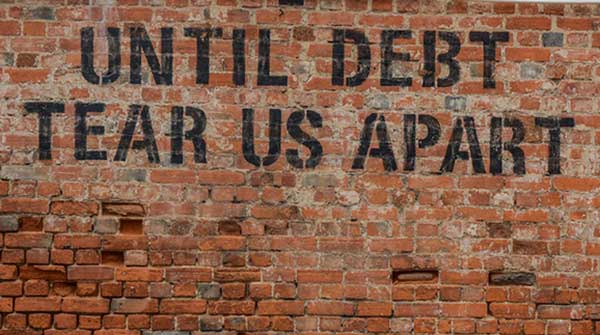By Steve Lafleur
and Jake Fuss
The Fraser Institute
As expected, every government budget in Canada this year has been covered in red ink. The pandemic has squeezed tax revenue while governments have boosted spending to combat the public health crisis and deep recession.
But after a year of social distancing and with the rollout of life-saving vaccinations underway, governments should start planning for the recovery and developing plans to put their finances on the path to sustainability.

Steve
Lafleur
Ontario is one of the provinces facing the most severe fiscal pressures. Its debt-to-gross-domestic-product (GDP) ratio is set to hit 48.8 percent at the end of this year after having run deficits every year since 2008-09.
But while the 2009 financial crisis and COVID-19 have dealt major setbacks to fiscal plans across the country, the level of debt accumulation in Ontario over the past decade has been the result of policy choices.
In comparison, look at Quebec. Despite its long-standing debt issues, it has quietly turned around its government finances over the past decade relative to other provinces while Ontario’s fiscal situation has deteriorated.
While most provinces added to their public debt levels between 2007-08 and 2019-20, Quebec is one of only two provinces that actually reduced its debt as a share of the economy during that time.
For instance, between 2007-08 and 2019-20 Alberta added the most provincial debt relative to its economy of any province, increasing provincial net debt as a percentage of GDP by 24.8 percentage points. Ontario increased its net debt-to-GDP by 13.1 percentage points, and British Columbia performed markedly better by adding only 2.8 percentage points.

Jake Fuss
And Quebec reduced its debt-to-GDP ratio by 3.4 percentage points. This is particularly impressive considering this period captures the effects of the global financial crisis. Nova Scotia was the only other province to achieve a reduction.
To be fair, the government of Quebec receives billions of dollars in equalization payments from the federal government every year. That does help.
However, Quebec’s fiscal situation going into the 2009 financial crisis was much worse than most provinces and they had to shoulder large debt service costs each year. So while equalization certainly helped, the province did face challenges due to prior policy mistakes that made their outperformance compared to other large provinces more impressive. This is particularly true given that Quebec got hit hard by the global financial crisis – though not to the same extent as Ontario.
Quebec’s success in limiting debt accumulation should help it continue to make progress, since it has limited the growth of interest costs. While there are large provinces with lower interest costs than Quebec as a percentage of revenue (B.C. and, at least for now, Alberta), Quebec now spends less on interest costs as a percentage of revenue than Ontario (7.0 percent versus 8.5 percent, as of 2021-22).
But equally as important as the impact of that past relative restraint is that Quebec intends to return to budget balance earlier than Ontario. While we should be cautious about reading too much into budgetary projections years out, the Quebec government hopes to balance the budget two years prior to Ontario, in 2027-28. Alberta, by contrast, hasn’t committed to a date.
The timeline isn’t the only difference. The difference in debt accumulation is also notable. The government 0f Ontario Premier Doug Ford expects debt (as a share of the economy) to continue rising over the course of its fiscal plan and reach 50.2 percent in 2023-24, In contrast Quebec expects to begin reducing its debt-to-GDP next year and reach 44.9 percent by 2023-24.
The pandemic has hit every provincial government hard. But relative fiscal prudence over the past decade combined with a path to budget balance over a shorter timeframe than Ontario means Quebec will likely continue to outperform Ontario on government debt accumulation.
Steve Lafleur and Jake Fuss are analysts with the Fraser Institute.
Steve and Jake are among our contributors. For interview requests, click here.
The views, opinions and positions expressed by columnists and contributors are the authors’ alone. They do not inherently or expressly reflect the views, opinions and/or positions of our publication.


